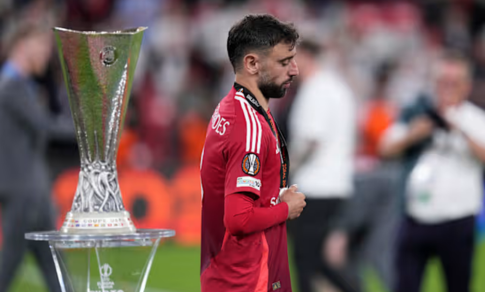Manchester United showed a resilient front as they departed Bilbao on Thursday afternoon, despite the heavy blow of their 1-0 defeat to Tottenham. The club continues to back head coach Ruben Amorim, who has stated that he would step down immediately if the ownership or fans lost faith in him, without demanding any compensation.
Meanwhile, the club insists it has a contingency plan for rebuilding the squad in the upcoming transfer window and remains optimistic about climbing back to the top tier of English football in the near future.
However, the harsh realities of the situation go beyond mere words. With no European football next season and financial losses mounting even after a second round of staff redundancies, Manchester United faces significant challenges.
Their exit from European competition and poor league standing raise serious questions about the club’s finances, transfer strategy, potential player departures, and Amorim’s future at Old Trafford.
Financially, the impact of missing out on the Champions League is substantial. United will soon release their third-quarter financial results, which are expected to reflect these difficulties. The club faces a £10 million annual reduction in income from its £900 million Adidas sponsorship deal due to the absence from Europe’s elite competition, alongside a significant drop in Premier League prize money—currently positioned 16th, the club stands to lose around £33 million compared to finishing fifth.
Additionally, lost gate receipts from fewer home matches and the lucrative rewards of the Champions League add up to an estimated £100 million financial setback from their recent defeat.
In response to these challenges, United is preparing further cost-cutting measures, including redundancies in the football department affecting scouting, medical, and sports science staff. While initiatives such as eliminating perks and trimming expenses are underway under Sir Jim Ratcliffe’s leadership, the club’s largest costs—transfer fees and player wages—remain a pressing concern.
Despite investing over £900 million in transfers and maintaining a wage bill of £365 million over the last five years, United’s performance in these areas has been disappointing, contributing to their current struggles.








ADD A COMMENT :